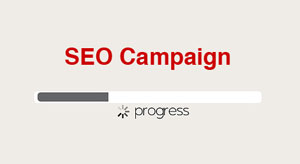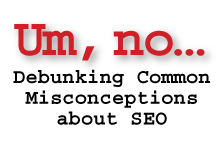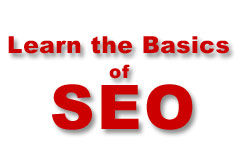Chances are, if you have started looking into search engine optimization for your website, you have probably already waited for the site to produce results that have not materialized. Your patience is wearing thin and you have already put a significant amount of money into the site. The last thing you want to hear is that it is going to take anywhere from 3 or 4 months to a year or more to show up on the first page of Google search results. Unfortunately, unless you are offering a very unique product or service and have little to no competition, it will indeed take time.

Is the time and investment in SEO worth it?
When was the last time you Googled something and found it on the second page of results?
Why does SEO take such a long time?
Isn’t there something that just needs to be turned on or fixed?
There are plenty of sites and SEO experts who promise top search engine results in as little as 48 hours. To put it bluntly, they are full of crap. What is worse, is that not only have they tried to rip you off with false promises, they have also given you some unrealistic expectations.
Effective SEO takes time. Why?
Search engine optimization is not always terribly difficult if you know what to do, but it is very time consuming. The site and its content must be analyzed and optimized, either by editing or rewriting – often both. Then Google takes some time to recognize these changes and adjust its ranking of the site. SEO usually includes making some effort to acquire links to the website from other relevant sites and social media. Negotiating the best links and establishing an effective web presence just doesn’t happen quickly – just like building a good reputation in the offline world. The only “fix” that can occasionally have overnight results would be the technical “on page” optimization that may not have been done when the site was created – the structure of the site, title tags, meta descriptions, internal links, and content optimization and so on. Or maybe a developer forgot to change the robots.txt file to stop blocking the search engines from crawling the site. In some cases, these adjustments can be taken care of quickly and if you don’t have a lot of competition, it just may be enough to get you where you want to be in the search results. But it is much more likely that you’ll need to do more, depending on how much competition there is for the search phrases you would like to show your site as number one.
Keepin’ it Real
Of the many ways Google decides which sites are the most relevant to a user’s search, inbound links or “backlinks” are among the most important. You’ll need links to your site to show Google and the other search engines that you are important or an authority in your field. You may be thinking “Great! I saw an ad for 10,000 backlinks for $50 – problem solved!” Whatever you do, do NOT try to get thousands, hundreds or even dozens of inbound backlinks all at once. Google has a lot of criteria for ranking a site, and hundreds of ways to keep you from gaming the system. If your site goes from just a few links to hundreds in a short period of time, they will assume that it is not because you have just launched an amazingly popular website that everyone found and linked to right away. Google likes to see “organic” links that occur naturally. If you get too many links immediately, Google may penalize your site by dropping you even lower in the ranks or knocking you completely out of the search results. Also, the links should be from good quality sites that are at least somewhat relevant to yours. How long will it take to find those sites and get them to link to your website?
Have you got competition that has been at this longer than you?
Chances are they’ve spent a lot of time creating content, getting links etc. It takes time to catch up. This can be one of the biggest obstacles to successful search engine marketing and it requires a big investment in time, research and experimentation.
Got Content?
Most SEO consultants agree that having lots of original, high quality content is essential. But what if the subject matter of your site just doesn’t need dozens of pages of information? You’ll need top notch on page SEO, better links and maybe a strong social media presence to make up for it; or someone will have to come up with more content.
Who keeps raising the bar?
Google, Bing and Yahoo are constantly evolving in an effort to provide a better service and more relevant search results. SEO strategies have to change accordingly. And the world changes, too. SEOs must be very aware of changes in language and culture. A few years ago, what is now called “branding” was referred to as “corporate identity”, for example. Keyword selection must also be adapted to fit the current trends in the words people use to describe things.
Agile Online Marketing
And once your website does start climbing to the top, your competitors will notice and start working on their own visibility. Your marketing plan may have to change some more. The overall search engine marketing strategy of any site must constantly evolve to survive and be effective.
Good search engine optimization is a craft that requires dedication, time and constant research and learning. A search engine optimizer has to be able to adapt to the changes, and have the ingenuity to take some of the error out of “trial and error”.
All of this is not meant to discourage you. SEO is complex, and is sometimes a confusing form of online marketing that is plagued with scammers and very real credibility questions. You want results and you want some idea of what you’ll get and when, but the most honest answers are often quite vague. If your site is new or has never been optimized, you can expect to see some upward movement within as little as 2-3 weeks and hopefully a better understanding of how SEO works will help you be patient. A good SEO consultant will keep you up to date on what is going on if you aren’t noticing improvements over time.
Real, effective SEO takes time and an ongoing effort to be successful and yield results that last.
Is the time and investment in SEO worth it?
When was the last time you Googled something and found it on the second page of results?



